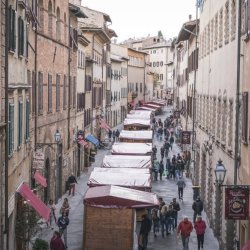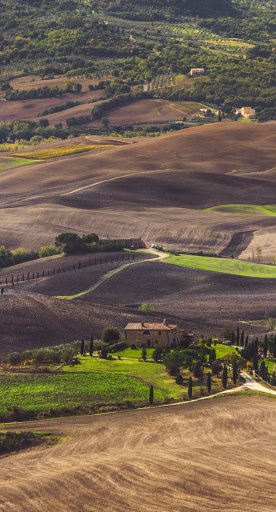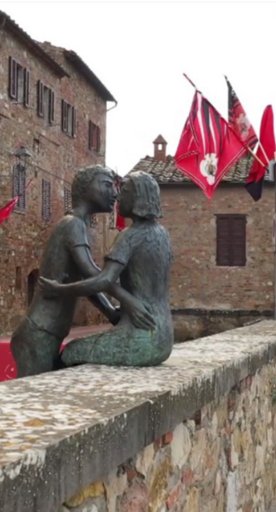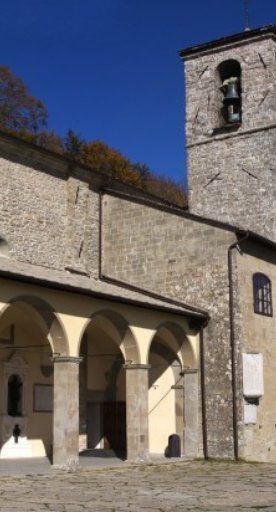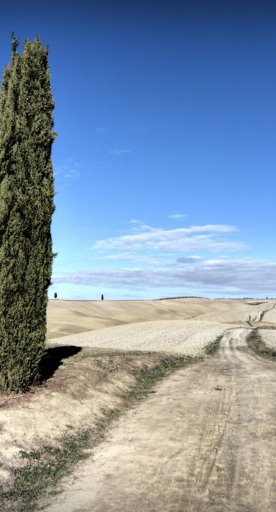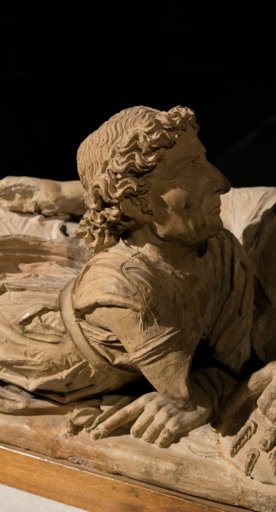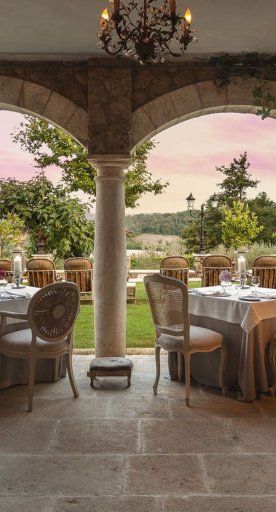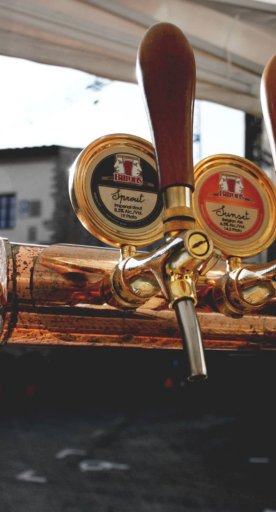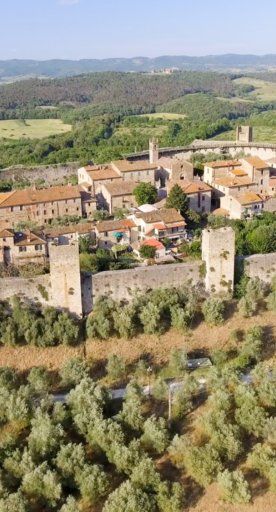

Contemporary art in Colle Val d’Elsa along the Via Francigena
A route following the variant of Via Francigena through Colle Val d’Elsa, in search of contemporary artworks
Colle Val d’Elsa overlooks the Tuscan landscape from its elevated position, and the perched houses that form the historic centre offer a beautiful view for those arriving from the valley. Here, history and modernity coexist in harmony: along the Via Francigena route that crosses the village — in the variant of Leg 32 — you’ll encounter numerous installations of contemporary art, the result of projects that have brought notable figures to work in Val d’Elsa.
Following the itinerary that enters Colle Val d’Elsa from Porta Nuova, the first work to be found is that by Tadashi Kawamata, known simply as Porta Nuova. In homage to the village’s past, the artist has created a wooden gate to represent temporality. A little further on at the Bastione di Sapia, La Voce che si Indebolisce (‘The Weakening Voice’) is a marble column engraved by Ilya Kabakov that looks out over the landscape and, just like the Porta Nuova, is intended to demonstrate the incessant passing of time.
The Il Baluardo ski lift, found along the Francigena route (which connects the lower part of Colle Val d’Elsa to the higher and older part) was designed by the world-famous architect Jean Nouvel as part of one of the urban redevelopment projects carried out in Colle Val d’Elsa. It houses Red Girl, one of the three sculptures from Kiki Smith’s ‘Color Still’ collection scattered throughout Val d’Elsa.

The itinerary continues until it is greeted by Alberto Garutti Facciata della Corale Bellini (‘Bellini Façade), not far from the Museum of Crystal. From here, a small detour from the Via Francigena route allows you to admire the Piazza Arnolfo (the village’s main square), the Spazio Michelucci and the Scalo Merci Don Gnocchi, places that hold traces of worldwide well-known figures and demonstrate contemporary and experimental architectural styles. Piazza Arnolfo is overlooked by Alessandra Tesi’s Persiana di Cristallo (‘Crystal Shutter’), a tribute to the art of working with this material on the hills.
Returning along the variant of Via Francigena, you’ll pass close to the Teatro del Popolo where Marco Magni’s Colonna di Luce (‘Column of Light’) enriches the foyer and recounts — like Tesi’s work — the mastery of glassmakers, glowing with the thousands of reflections generated by the lights in the auditorium.

From here on, the historic pilgrim’s route continues its journey and leaves the village, heading towards Monteriggioni, where it resumes the original itinerary that crosses the territories of the Val d’Elsa, in an exciting journey that, in the Colle variant, is enriched with art, reflections and contemporary architecture.
To find out more:




